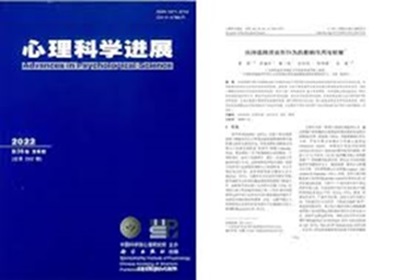The double-edged sword effects of team virtuality: A team development perspective
引用次数: 0
Abstract
: Team virtuality refers to the extent to which team members disperse in different working locations and collaborate through use of virtual communication tools. Numbers of organizations have reacted to the development of digital economy and the impact of COVID-19 pandemic by enhancing team virtuality. However, whether team virtuality is beneficial or harmful to team performance is still unclear in the extant literature, confusing practitioners on whether they should enhance team virtuality, and if yes, then on how to leverage team virtuality to improve team performance. Relying on team development perspective, this project aims to address these important questions: Whether and why team virtuality lead to both positive and negative effects of team performance and how can team leaders intervene such effects? Towards this end, three studies would be conducted: ① The differential effects of team virtuality on team performance varying as team development stage; ② The positive and negative mechanisms linking team virtuality to team performance and the dominant mechanism in different team development stage; ③ The effective interventions team leader can take to enhance the positive effects while buffer the negative effects of team virtuality on team performance in different team development stage. The novelty of this project: Provide a novel and integrative theoretical framework for interpreting the double-edged sword effects of team virtuality on team performance; Provide a new perspective for team leaders to intervening the effects of team virtuality on team performance based on different team development stage.团队虚拟的双刃剑效应:团队发展视角
:团队虚拟性是指团队成员分散在不同的工作地点,通过使用虚拟通信工具进行协作的程度。许多组织通过增强团队虚拟性来应对数字经济的发展和COVID-19大流行的影响。然而,在现有的文献中,团队虚拟性对团队绩效是有益还是有害的还不清楚,这让实践者困惑于他们是否应该增强团队虚拟性,如果是,那么如何利用团队虚拟性来提高团队绩效。基于团队发展的视角,本项目旨在解决以下重要问题:团队虚拟是否以及为什么会导致团队绩效的积极和消极影响,以及团队领导者如何干预这种影响?为此,本文将开展三项研究:①团队虚拟性对团队绩效的影响随团队发展阶段的不同而不同;②团队虚拟性对团队绩效的正向和负向影响机制及其在不同团队发展阶段的主导机制;③在团队发展的不同阶段,团队领导者可以采取有效的干预措施来增强团队虚拟性对团队绩效的积极影响,同时缓冲团队虚拟性对团队绩效的消极影响。本项目的新颖性:为解释团队虚拟性对团队绩效的双刃剑效应提供了一个新颖而完整的理论框架;基于不同的团队发展阶段,为团队领导者干预团队虚拟性对团队绩效的影响提供了新的视角。
本文章由计算机程序翻译,如有差异,请以英文原文为准。
求助全文
约1分钟内获得全文
求助全文

 求助内容:
求助内容: 应助结果提醒方式:
应助结果提醒方式:


